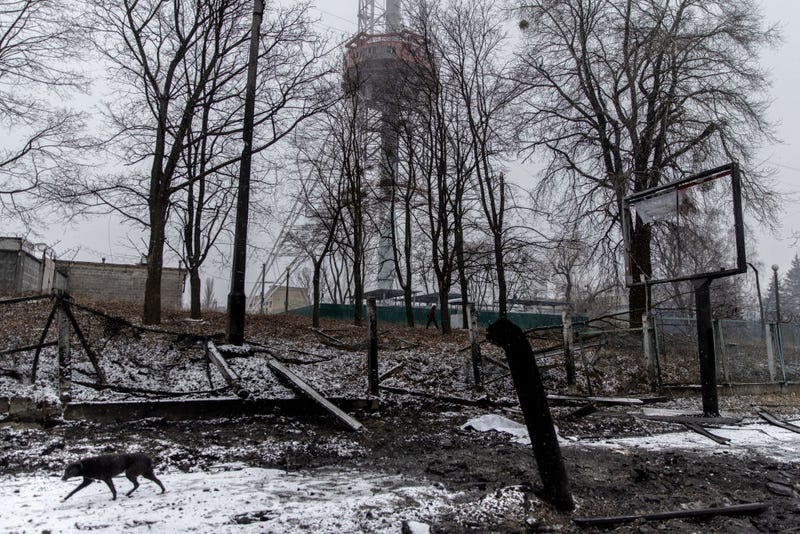
Russian President Vladimir Putin and his regime have not only waged war on Ukraine, but also on the free press. All independent news media in Russia have either been shut down or shut out.

Access to news websites and even social media platforms, such as Facebook and Twitter, have been restricted. State communications watchdog Roskomnadzor restricted access to BBC Russia’s website, as well as Radio Liberty and the Meduza media outlets.
Only Kremlin-backed media, such as RT, remain unrestricted in Russia. The government crackdown on information and objective journalism went a step further last week when Russian officials announced any news agency that uses the term “war” to describe the current “military operations,” would be subjected to 15 years in prison.
Despite Putin’s best dictatorial efforts to dismantle the truth, one medium remains defiantly relevant, reliable, and resilient: RADIO.
Unlike internet service, television broadcasts, and social media apps, radio waves cannot be disrupted. This fact has not been lost on journalists and media outlets that deliver content to residents in Eastern Europe.
The BBC recently brought back its shortwave radio service in Ukraine and Russia to ensure some continued access to news. Yes, the same radio service that helped deliver news during WWII, has once again been deployed and dialed into action. For four hours each day, Ukrainians and Russians can listen to the BBC’s world news service in English.
Shortwave radio uses frequencies that are accessible on portable radios, meaning that those who are otherwise isolated in war zones can still tune in for news and entertainment.
Over the years, newer technology has largely rendered traditional, shortwave radio obsolete.
However, with the BBC’s decision to restore the service, which it discontinued in Europe nearly 15 years ago, shortwave radio is now the last line of defense in the pursuit of truth.
Other media outlets have long employed a similar service, delivering broadcasts via shortwave radio. Trans World Radio is a media ministry with a mission to deliver Christian programming to areas of the world where Christians fear persecution, or areas that are extremely remote, such as the Amazon.
Missionaries deliver portable radios, often during covert visits, then recipients can listen to programming delivered via a worldwide network of shortwave stations. Much of TWR’s programs also include news updates. The mission’s operation in eastern Europe has extensions in Russia, Belarus, and Ukraine. They’ve been busy this month.
Closer to home in the United States, it is worth noting that radio has been a critical platform for news coverage during crises, such as hurricanes, wildfires, and blackouts.
When families lose power at home, radios become invaluable. Radios don’t require a modem, gasoline, or charging station.
In fact, several academic studies have shown that radio is the medium best adapted to crisis.
Moreover, listeners perceive radio as the most credible source for news and information during emergencies, partly due to the immediate nature of radio newscasts. Even throughout the pandemic, as listeners spent less time in their cars, radio listenership still rose.
It should come as no surprise then that radio provides not only news, but comfort, during times of despair – a tried and true medium.
It’s reassuring to know that more than a century after KDKA radio first went on the air, radio continues to serve its listeners. They know they can count on us to be there.
